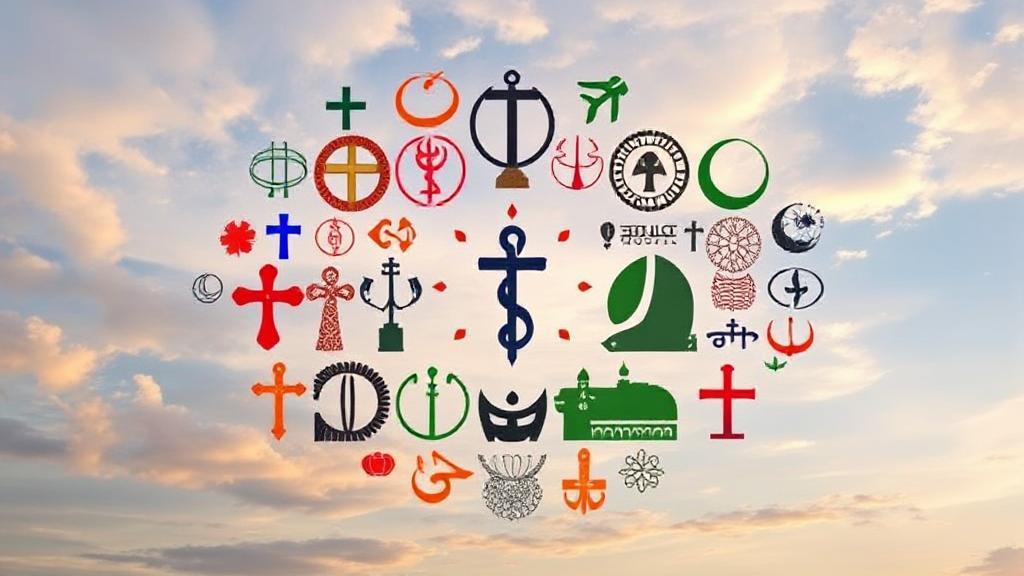Introduction
The concept of God is a central theme in many religions and belief systems around the world. While the idea of a supreme being or ultimate reality is common, the characteristics, roles, and interpretations of God vary significantly across different cultures and traditions.
Monotheistic Religions
Judaism
Judaism centers on the belief in YHWH, a single, all-powerful God who is the creator and ruler of the universe. God is seen as a personal deity who has established a covenant with the Jewish people. The Hebrew Bible, particularly the Torah, is the foundational text that outlines God's laws and teachings.
- Core Beliefs: Covenant, Law, Monotheism
Christianity
In Christianity, God is understood as a Trinity—Father, Son, and Holy Spirit. This trinitarian concept emphasizes the unity of God in three distinct persons. Christians believe in a personal God who is both transcendent and immanent, actively involved in the world and in the lives of believers. The Bible serves as the primary source of knowledge about God.
- Core Beliefs: Trinity, Incarnation, Salvation
Islam
Islam is strictly monotheistic, emphasizing the oneness of Allah. Muslims believe that God is incomparable and beyond human comprehension, yet merciful and compassionate. The 99 names of Allah describe various attributes while maintaining absolute unity in divine nature. The Quran, considered the literal word of God, guides understanding of God's will.
Eastern Religious Perspectives
Hinduism
Hinduism presents a complex view of divinity, with a belief in a supreme reality known as Brahman. This ultimate reality manifests in various forms, including a multitude of gods and goddesses. The Vedas serve as key texts for understanding Hindu theology.
"Truth is one, but sages call it by many names." - Rig Veda 1.164.46
Buddhism
While Buddhism does not focus on the worship of gods, it acknowledges divine beings. The concept of God is less central, with greater emphasis on achieving enlightenment through the teachings of the Buddha. The Tripitaka contains the core Buddhist teachings, focusing on:
- Personal spiritual development
- Achieving enlightenment
- Understanding the nature of reality
Indigenous and Traditional Beliefs
Many indigenous cultures maintain traditional beliefs about divine beings and spiritual forces, including:
- Nature spirits
- Ancestral guides
- Creator deities
- Animal spirits
Native American tribes often hold beliefs in a Great Spirit or Creator, seen as a life force pervading all things. African traditional religions recognize a supreme creator along with lesser gods, spirits, and ancestors.
Modern Perspectives
Scientific and Philosophical Views
Modern scientific understanding has influenced religious thought:
| Approach | Description |
|---|---|
| Evolutionary Creation | God works through natural processes |
| Intelligent Design | Divine intelligence guides evolution |
| Metaphorical Interpretation | Religious texts as symbolic truth |
Atheism and Agnosticism
Atheism represents the absence of belief in gods, emphasizing:
- Secularism
- Humanism
- Rationalism
Agnosticism holds that the existence of God is unknown or unknowable, maintaining a position of skepticism and open inquiry.
Common Themes
Despite vast differences, several themes appear consistently across various concepts of God:
- Transcendence: Beyond ordinary physical reality
- Wisdom: Source of ultimate knowledge
- Justice: Moral authority and judgment
- Love: Divine compassion and care
Understanding these diverse perspectives helps foster interfaith dialogue, cultural appreciation, and religious tolerance while deepening our appreciation for the complexity of human spirituality. For further exploration, visit the Pluralism Project at Harvard University.
